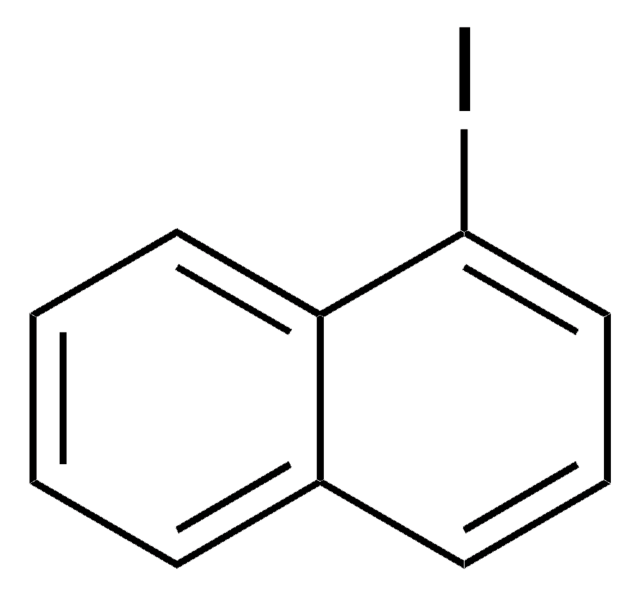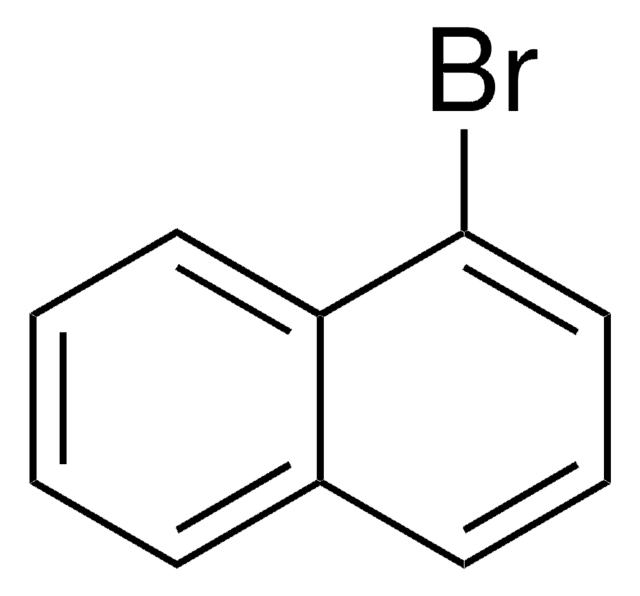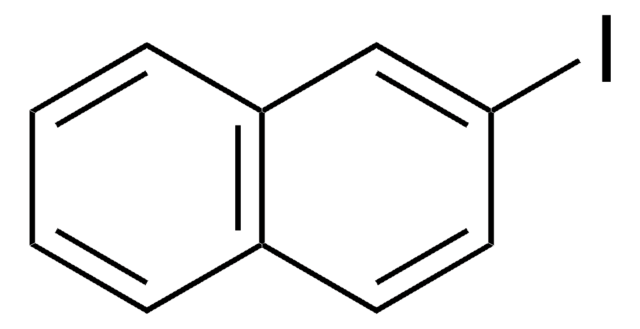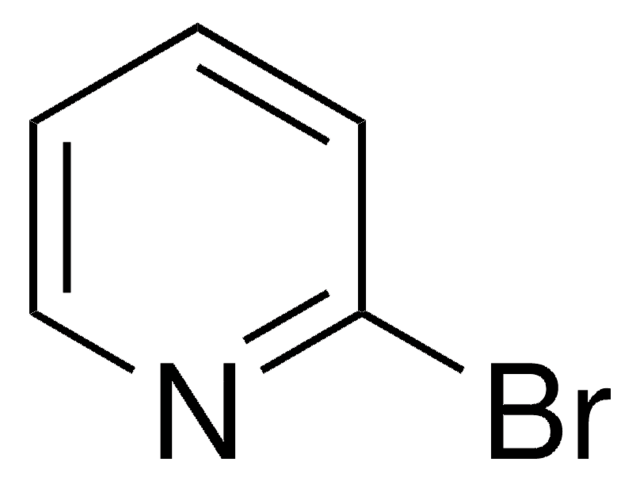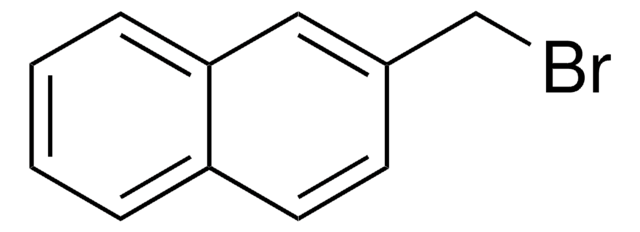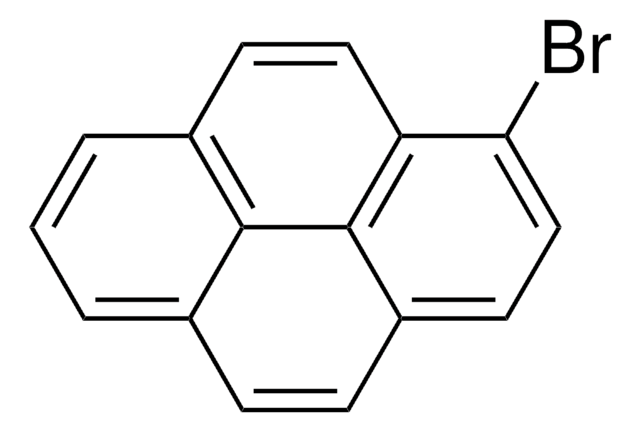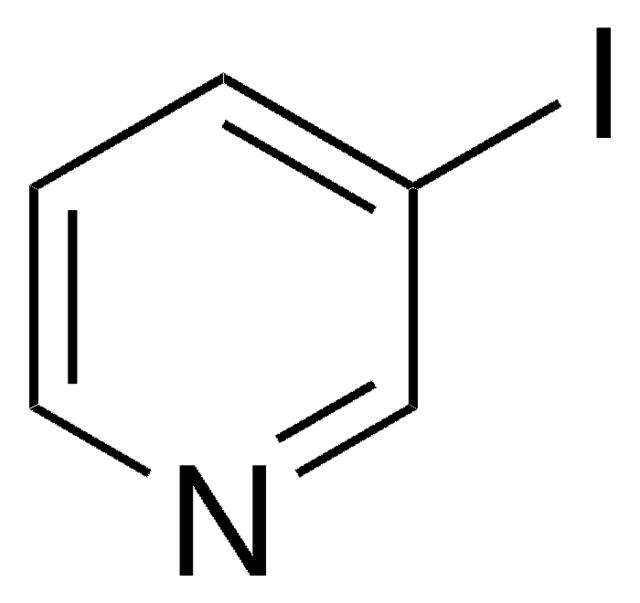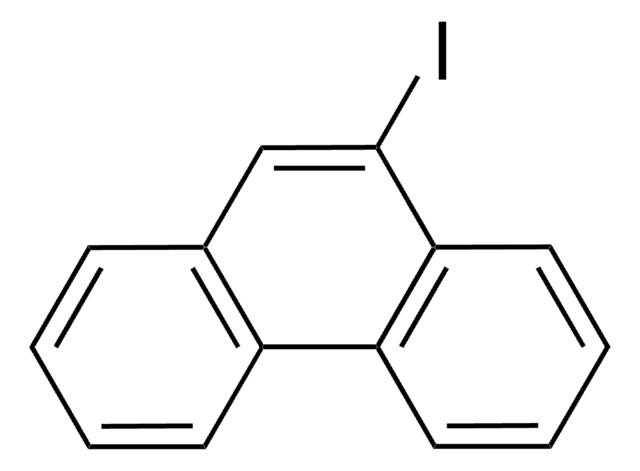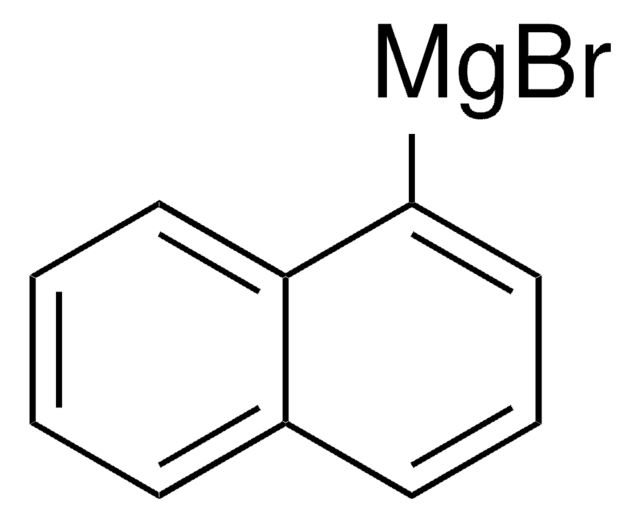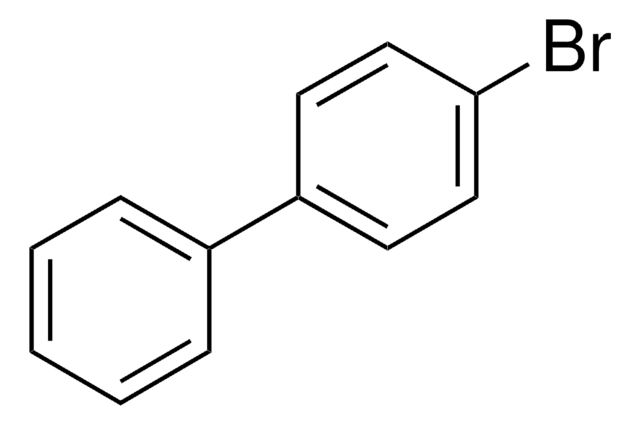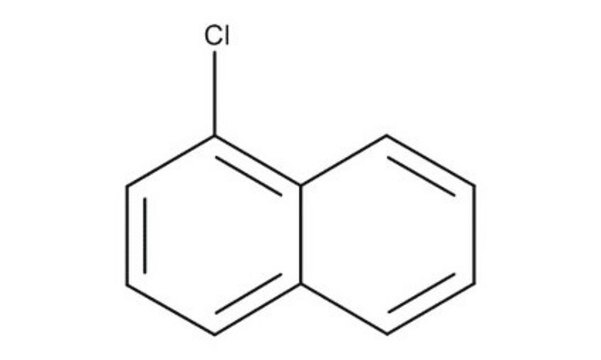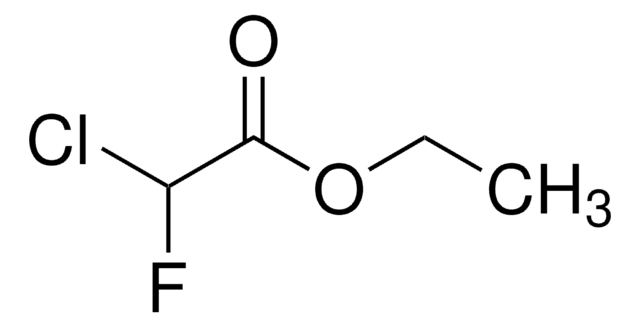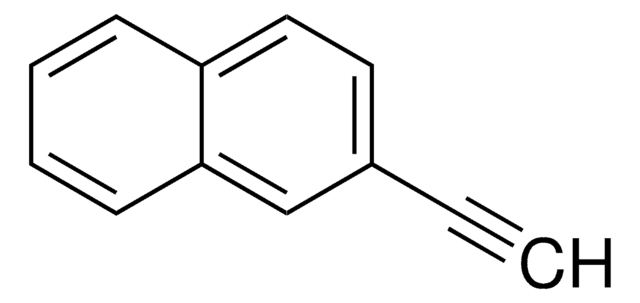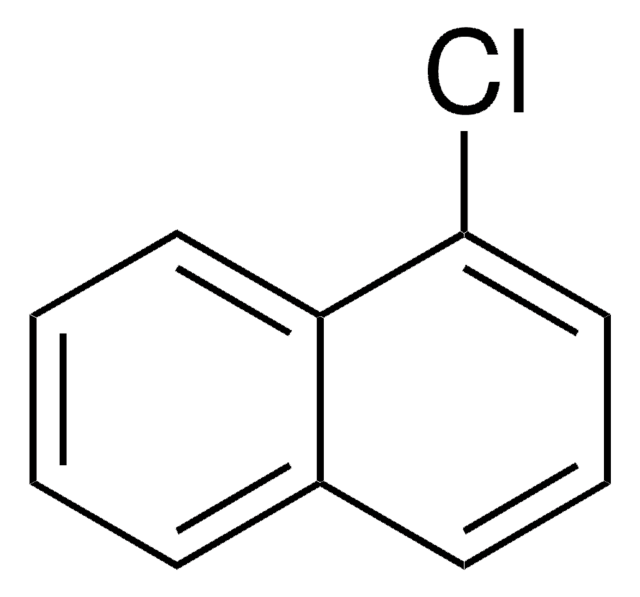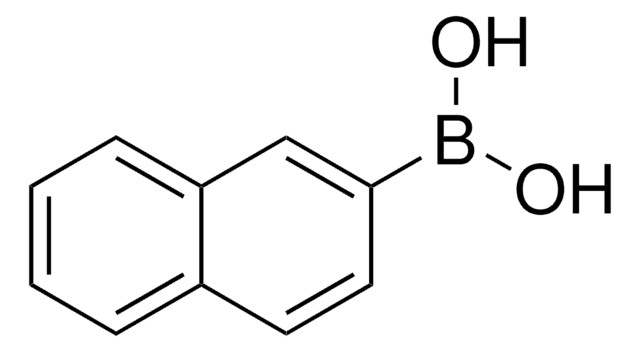183644
2-Bromonaphthalene
97%
Synonym(s):
β-Bromonaphthalene, β-Naphthyl bromide, 2-Naphthyl bromide
About This Item
Recommended Products
Quality Level
assay
97%
form
solid
impurities
≤3% 1-bromonaphthalene
bp
281-282 °C (lit.)
mp
52-55 °C (lit.)
solubility
methanol: soluble 50 mg/mL, clear, colorless to yellow
SMILES string
Brc1ccc2ccccc2c1
InChI
1S/C10H7Br/c11-10-6-5-8-3-1-2-4-9(8)7-10/h1-7H
InChI key
APSMUYYLXZULMS-UHFFFAOYSA-N
Gene Information
human ... CYP2A6(1548)
mouse ... Cyp2a5(13087)
Looking for similar products? Visit Product Comparison Guide
Related Categories
General description
Application
signalword
Warning
hcodes
Hazard Classifications
Acute Tox. 4 Oral - Eye Irrit. 2
Storage Class
11 - Combustible Solids
wgk_germany
WGK 3
flash_point_f
235.4 °F - closed cup
flash_point_c
113 °C - closed cup
ppe
dust mask type N95 (US), Eyeshields, Gloves
Certificates of Analysis (COA)
Search for Certificates of Analysis (COA) by entering the products Lot/Batch Number. Lot and Batch Numbers can be found on a product’s label following the words ‘Lot’ or ‘Batch’.
Already Own This Product?
Find documentation for the products that you have recently purchased in the Document Library.
Customers Also Viewed
Our team of scientists has experience in all areas of research including Life Science, Material Science, Chemical Synthesis, Chromatography, Analytical and many others.
Contact Technical Service